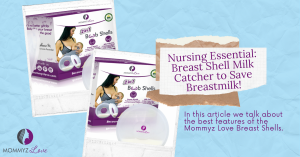Breastfeeding is natural, but that doesn’t mean it isn’t challenging – in fact, many moms report having initial feeding difficulties that motivated them to seek help from a doula, midwife, or lactation consultant. What exactly is a lactation consultant, and what makes them so qualified to help with breastfeeding? In the simplest terms, a lactation consultant is a breastfeeding specialist who has undergone special training to help moms learn to breastfeed their babies. They are often Registered Nurses before taking on additional and sometimes extensive training to become an IBCLC, an International Board Certified Lactation Consultant, or a CLC, a Certified Lactation Consultant. When women have trouble with low supply, painful nursing, or latching difficulties, a lactation consultant can help them troubleshoot and get back on the right track.

How do you go about finding a lactation consultant who is qualified to help? As new moms, we are often overwhelmed by the search for the perfect provider, but there are many ways to find the right fit. Here are some great places to start:
Your doula
A doula is support person for a laboring mom who will often visit with the mom before delivery and stay during the postpartum period to help establish breastfeeding. If you had a doula attend your birth, chances are that she knows some fantastic lactation consultants. She might even be one, herself!
Your midwife
Midwives provide a plethora of fantastic resources during the prenatal and postpartum periods. Many practices have specific lactation consultants they recommend, while some will even have their own, in office. They often have a list of resources ready to hand to moms in need.
Word of mouth
Facebook has evolved over the years to be a fantastic space for parents to be part of many different groups that center around any and every parenting philosophy. There are many breastfeeding support groups, as well as regional mom groups. These women can often point you in the right direction with a lactation consultant that they personally have worked with and recommend.
Your place of delivery
If you had your baby in a hospital or birth center, the nurses are a great resource for all things postpartum, including lactation consultants. There are often lactation consultants rounding on new moms, too, that you are able to meet with and seek help from if needed.

Now that we’ve discussed where to find a lactation consultant, how do you go about choosing one? Every mom is going to have her own set of unique criteria she is seeking, such as budget and location. Feel free to speak with several different lactation consultants before choosing one that feels like the right fit. There are many factors to consider when choosing a specialist, such as the following:
- Many lactation consultants do not accept insurance and will charge a flat fee to the breastfeeding mom for each visit. Sometimes these visits can add up, and they are often around or over $100 each in many areas. Some lactation consultants work at hospitals or birth centers and will accept insurance, so moms will just pay a co-pay for each visit. Some will also accept credit cards and/or flexible spending accounts. Make sure you factor these costs into your decision.
- Many moms prefer to see an IBCLC, which is an International Board Certified Lactation Consultant. Some moms will also see CLCs, which stands for Certified Lactation Consultant. What is the difference between the two? An IBCLC certification requires 14 college level courses or a degree in health sciences, while the CLC certification doesn’t require any minimum education. IBCLCs must receive a minimum of 90 hours of lactation specific experience, 300 mentorship hours in clinical practice, and complete a board certified exam. CLCs must complete 45 hours of lactation specific experience, and their certification do not require any supervised clinical practice. The difference in education and training is clear. Though some CLCs are undoubtedly very knowledgeable, the IBCLC credentials carry more weight and usually signify a provider who has been through extensive training. You can also look for a recommended IBCLC through breastfeeding organizations such as La Leche League and Breastfeeding USA
- Being a new mom is hard! Breastfeeding can also be an added challenge. All new moms know that sometimes simply getting dressed and out of the house is a small victory during those newborn days. Make sure you give yourself realistic expectations for travel time to your lactation consultant – better yet, find one to come to your home! You want her location to be ideal for your family’s needs, as this is a busy and stressful time as a new mom.
There is no right or wrong way to go about choosing a lactation consultant, but it’s best to make sure that their credentials, cost, and location fit your family’s needs. Breastfeeding can be challenging for many women, and finding a trusted expert to guide you through the process is priceless.
Did you use the help of a IBCLC or CLC, or even a mom support group. Did you find that it was worth it, and you were able to get on track with breastfeeding. After your experience what would you recommend to a friend is the best way to overcome breastfeeding issues?






